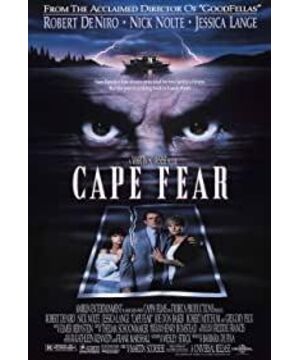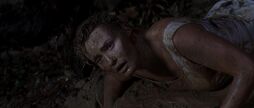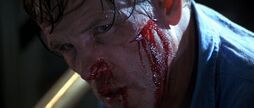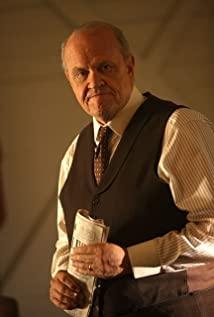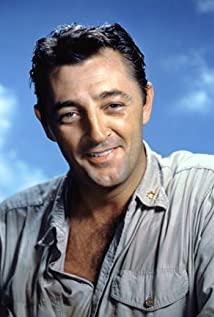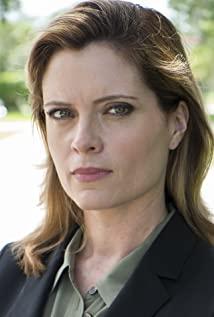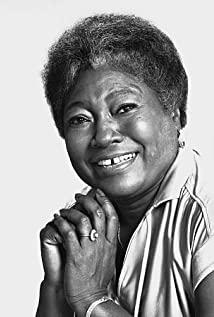This film deliberately buried two traps when telling the story.
One is superficial, what exactly did Kaidi and the lawyer do, will produce this kind of grudge and bloody revenge. The lawyer has long since confessed that he had concealed a report that might be beneficial to Kaidi. This report may allow Kaidi to escape the severe punishment of the law. At this time, the lawyer was not only unscrupulous in his private life, but also not sincere enough to treat his wife and children. Later, he hired thugs for the purpose of hurting Kaidi severely. Lawyers are morally inferior, and Caddy deserves sympathy. In fact, when the film is about to end, it is known that Katie has not only committed rape, but also more than one. It is a real scumbag. Lawyers are facing social moral torment and differences in legal professional ethics. Conscience and professional dogma choose one, and finally lawyers Standing on the side of conscience, is Kaidi's reason sufficient? Should the lawyer be punished? To what extent is the punishment appropriate?
The other is to ask the audience, what has happened to your position, and have your principles changed with the plot? The handsome guy Robert De Niro is pleased with his grudges, who doesn't want to watch? Maybe because of wrongdoing, Katie has been punished for too long, and even her mother was unable to meet at the end of her life, and she regretted not being forgiven by her mother. Are you heartbroken? When Kaidi shows up and hurts the innocent, do you hope that the means of revenge should not indiscriminately hurt the innocent. When lawyers ask private investigators to threaten Caddy, or even ask gangsters to come forward and teach Caddy with violence, do you sympathize with the abuser again? When Caddy entered the devil mode and fought against the lawyer's wife and children, did you think that Caddy should be beaten to the hospital when he was taught?
These two traps complement and complement each other. The former style is like Hitchcock, the latter is like Haneke. The former is to deliberately conceal key clues, and most of the mystery dramas or novels will use it, such as the first-person narrative "Roger's Mystery" by the grandmother; the latter is to guide the audience to empathize, reflect on their own standpoint principles, and deepen the film's philosophy and The process of social exploration to achieve ideological influence, such as "Funny Games" filmed twice by Haneke, what is the logic of killing a well-educated metamorphosis? The former grabbed the audience's legs, while the latter grabbed the audience's hearts. In the performance of the plot, the director often uses the middle shot, super close-ups on the facial expressions of the lawyer’s wife, and uses the negative film effect three times to spread fear to the audience. When composing the picture, Cadido occupies the core position, while the lawyer is often related to the narrow windows. The blinds are juxtaposed, the angle of the camera is often used to express fate from the perspective of God overlooking the lawyer, while Kaidi looks up from a large angle, as if Frankenstein is reappearing.
It is necessary to discuss, who is Kaidi? Where do you come from, and where do you want to go? Uh, it seems that this is a big problem! Take your time, let's talk about how other people think of Caddy first. A southern accent, he didn’t know how to write before he went to prison. He raped two young girls. People who knew their roots said: "White trash", a perverted rapist. After he was released from prison, he didn’t know his roots and looked at him: handsome and strong, humorous and easy to talk. . This impression is almost the opposite. It highlights Kaidi's cold, complex and confusing nature. How does Caddy see himself? After he was released from prison, Kaidi engraved a motto on himself, expressing his expectation and perseverance for a just trial. After defeating the gangster who bullied him, he claimed that he was not a "White trash", he could read better than others, and he considered himself to be. "Lawyer", because he had studied law and defended for himself, he agreed that each did his own job well, so he was angry at the lawyer for not doing his job well, and instead he thought that he was "helping him" for the retaliation imposed on the lawyer. Go to hell and get "salvation". When chatting with Daniel, he said he was a "big bad wolf". He said to the lawyer, "I am God, God is me, I am as great as God, and he is as small as me." This passage echoes the scriptures he engraved on his body and the books he spent in prison. Those books and photos were given close-ups. Nietzsche and Stalin in military uniforms. The book is Nietzsche’s Saying Zarathustra, " "The Will to Power" shows that Caddy worships Nietzsche and believes in Nietzsche’s philosophy. Nietzsche’s most famous saying, "God is dead", re-examines human morality. For justice, Nietzsche believes that only two forces of equal strength are qualified to talk about justice, you You will not see the emperor talk to beggars about justice, Hitler is also a big fan of Nietzsche, it can be said that Nietzsche's philosophy is very easy to be misinterpreted and go to extremes. Judging from the "Judgement" at the end of the film, Katie considers himself God and can dispose of other people's lives at will.
Kaidi came from a farm in rural Atlanta, and when he was released from prison, he had changed a lot. The film appeared several times, and others asked him where he came from? His answer, "Georgia Prison" (half-joking), and "Black Forest" shows that he has not admitted his origin, and he has been reborn from the prison. This newcomer who can read and think, after the death of his mother Lorita, has no home, because the farm has been peddled, there is no home to go back to, his wife has already regarded him as dead, he has become a lonely ghost. When he walked out of the prison gate, the guard asked him if no one came to pick him up. He replied, no. At this time, Kaidi was in a state of loss, no relatives, no fetters, and loneliness. The tragic situation in prison has reshaped a strong newcomer who loves to read. Killing for no reason, trampling on others' lives, is precisely because Caddy can no longer face himself, he is confused, proclaimed himself a god, to judge others, and is doomed to the end. An obvious feature of Kaidi's dress is smoking a cigar. The thick and big cigar is of course a sexual symbol, representing strength and conquest. Towards the end of the film, Caddy took out his cigar, bit his cigarette holder and spit it on the lawyer, while Danielle suddenly took out the fuel and lit Caddy. Pay attention to where Danielle took out the weapon. This is also a personality hint, Little Red Riding Hood. The fire burns the big bad wolf.
Where is Caddy going, and what is he pursuing? He wants to complete the redemption and help the lawyer complete the "redemption". And how big the price is, Caddy doesn't care, he doesn't care how many innocent lives he will hurt. Justice and Truth are engraved on him, but his methods are neither glorious nor fair. How to explain an avenger who pursues justice but tramples on justice? Doesn't this kind of creed create confusion? In fact, since Kaidi was released from prison, he was on the road of no return, because he had a few words of Nietzsche in his mind, but he did not go through legal procedures to defend his rights, but decided to lynch. He regards the other prisoners in the prison as White Trash, he has no sin, the only sin is cigars, smoking cigars to remind himself that he is a human. What he did to the lawyer and his family was to teach the lawyer something. He is a mentor, he is better than a lawyer, and he wants to teach a lawyer the meaning of confession. His whole meaning lies in this. If all the lawyers die, his task will be completed. What is the point of being alive, and what fun is there? Like a cat that doesn't want to kill mice, Kaidi enjoys the torment and fear of the plaything. The meaning of oneself lies entirely in the misery of others. Such a life is sad and emptiness.
At the end, Katie descended with the shipwreck, singing while descending, without anger or unwillingness. For him, death is rebirth. The tendency to self-destruct has finally come to fruition, and a sad and frightening life has finally come to an end. Is it all over? Of course not. It's nothing more than changing a vest in the future and doing it again somewhere. Because the theme of film noir is that it’s not me who is wrong, but the wrong society.
View more about Cape Fear reviews


